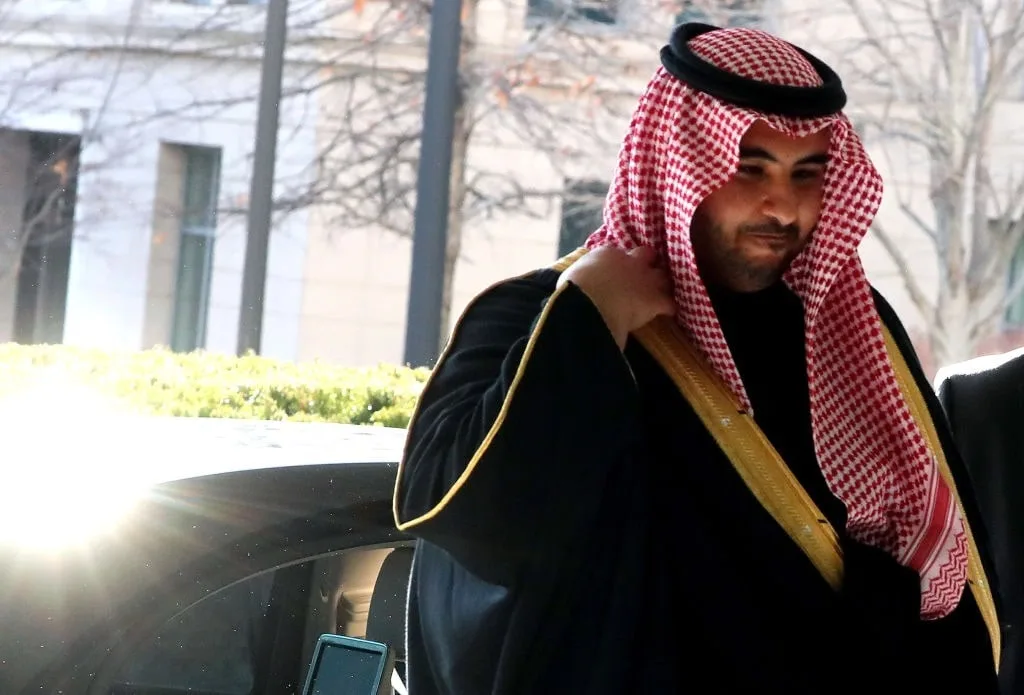On Oct. 30, the defense minister of Saudi Arabia, Khalid bin Salman Al Saud, began a series of meetings with US officials in Washington, DC, as tensions flared in the Middle East. The relationship between the United States and Saudi Arabia has had its ups and downs, and recently the bond has been shaky.
Saudi Arabia and the US Seek Common Ground
As the Israel-Hamas war rages in Gaza, finding common ground between Saudi Arabia and America will be a challenge. Against the violent backdrop is Iran, the region’s troublemaker, calling for an oil embargo against Israel. Although up to this point the Biden administration has done little to strengthen a rapport with the kingdom, National Security Advisor Jake Sullivan welcomed Prince bin Salman to the White House, and the readout of their conversation explained:
“[Sullivan] confirmed President [Joe] Biden’s commitment to support the defense of US partners against threats from state and non-state actors, including those backed by Iran … Mr. Sullivan and Minister bin Salman also discussed the current situation in Gaza, following the recent phone call between President Biden and Prime Minister and Crown Prince Mohammed bin Salman [MBS]. They affirmed the urgent need to increase humanitarian assistance for the people of Gaza.”

Defense Minister Khalid bin Salman Al Saud (Photo by Mark Wilson/Getty Images)
The biggest challenge for the administration is to keep alive the vestiges of the Israel-Saudi agreement, which showed promise right before Hamas’ vicious terrorist attack on Israel. And a glimmer of hope rests with a potential US-Saudi defense arrangement. “Saudi Arabia is determined to secure a military pact requiring the United States to defend the kingdom in return for opening ties with Israel and will not hold up a deal even if Israel does not offer major concessions to Palestinians in their bid for statehood, three regional sources familiar with the talks said,” Reuters reported eight days before the Hamas incursion.
Saudi Arabia has believed the United States would come to its aid in the event of an attack by Iran, despite the China-brokered friendship agreement between Iran and the kingdom. Yet, the Saudi-Israel peace deal might not be moribund, based on the fact that Biden and MBS spoke on phone, affirming “the importance of working towards a sustainable peace between Israelis and Palestinians as soon as the crisis subsides, building on the work that was already underway between Saudi Arabia and the United States over recent months.”
US Criticism of Saudi Arabia Should Be Relegated to the Past
Biden and his team have been critical of Saudi Arabia in the past over its failure to lower oil prices and for defending itself against missile and drone attacks from Iran-backed Houthi terrorist rebels in Yemen with US-produced weaponry. But circumstances are different now, perhaps because the USS Carney shot down 15 drones headed for Israel, many launched from Yemen by the Houthis. Saudi Arabia needs the United States as a bulwark against Iran and as a moderating influence in the Middle East. America supports “ongoing efforts to strengthen the defense partnership between the United States and Saudi Arabia, which for decades has served as a cornerstone for regional stability and deterrence,” as the White House put it.
The largest and wealthiest Gulf Region nation, Saudi Arabia is in a precarious position among other Arab countries. The Palestinians, particularly Hamas and Hezbollah, are a troublesome speed bump on the road to calm in the region. The Arab states surrounding Israel have shown no inclination to accept Palestinian refugees or to use their combined influence to moderate anti-Israel behavior in Gaza. During this Hamas-initiated war with Israel, the Saudi government is trying to appear pro-Palestinian while not foreclosing on a Saudi-Israel pact that could happen when the hostilities are over. Focusing on the humanitarian crisis in Gaza is a goal both the United States and the kingdom can embrace. No doubt this is part of the discussion between Sullivan and the Saudi defense minister.
Add to the mix that Saudi Arabia is the US’ largest military weapons buyer by a factor of 2.7 times more than the closest neighbor, Australia, according to Statista. “Nearly eighty percent of Saudi Arabia’s defense acquisitions are with the United States. The US has $126.6 billion in active government-to-government sales cases with Saudi Arabia under the FMS system,” according to the US Department of Commerce, International Trade Administration. The United States wants to keep those sales going to ensure that the Saudi Ministry of Defense has a deterrent capability to complement the US presence.
A strong association between the United States and Saudi Arabia could be a positive step in quelling the tumult in the Middle East as well as a counterbalance to China’s designs in the Gulf Region. Let’s hope the Biden administration will do everything to solidify it.
The views expressed are those of the author and not of any other affiliation.




